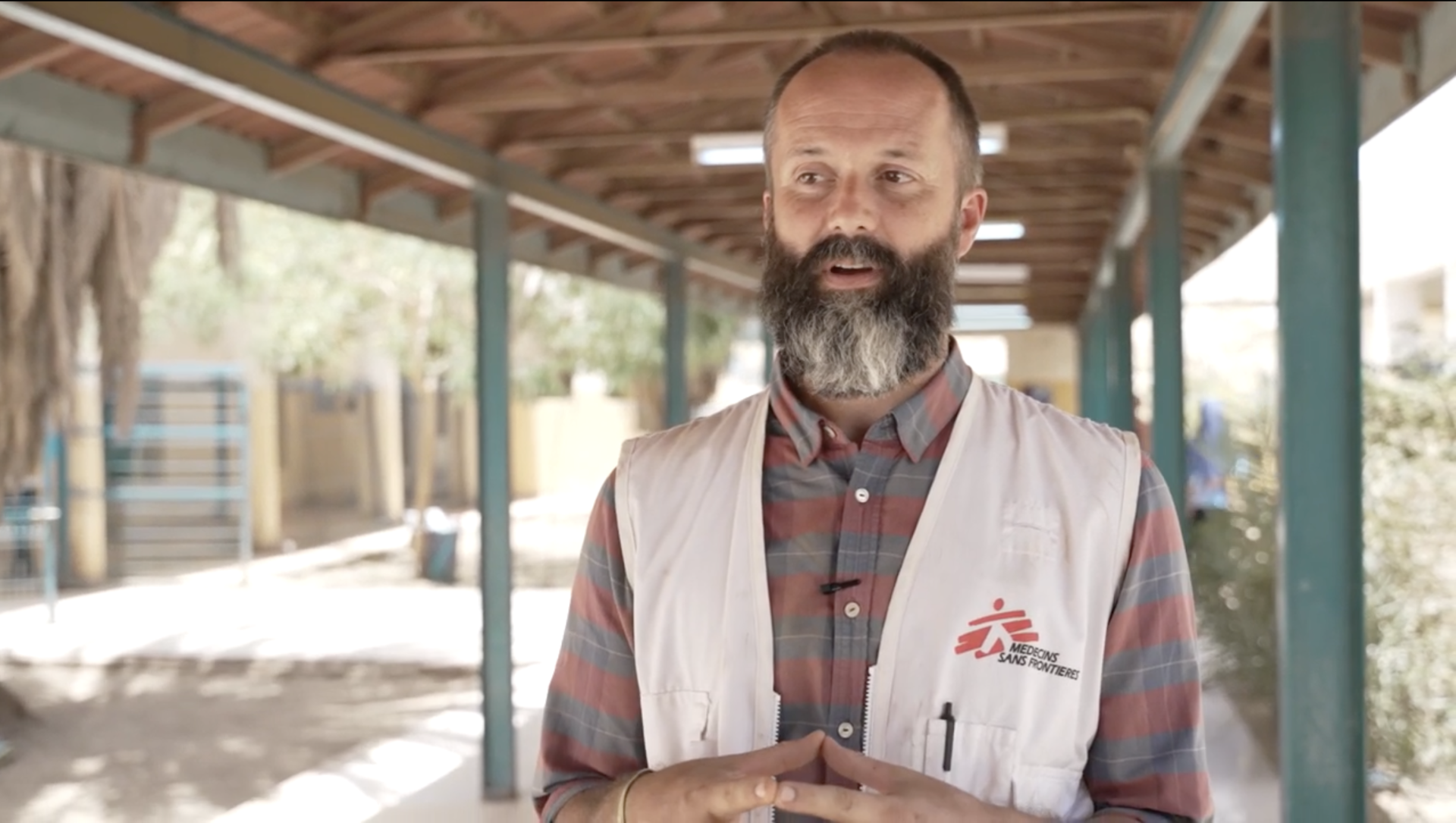We first gained access to south Khartoum one week ago and identified Bashair Teaching Hospital as a site that we could place our surgical team to be close enough to the frontline and the conflict to really save lives and respond to the needs of conflict-affected people but also to be in a place that our teams could be safe and we could operate. Bashair Teaching Hospital made sense in this zone in south Khartoum.
MSF is working in collaboration with community volunteers – doctors and nurses but also young people from the area and the community who made a decision to try to restart this hospital after it has closed and staff had left for their own safety. When the surgical team arrived in south Khartoum, we found a hospital where people are really working as hard as they can and taking risks. So we’ve joined them hand-in-hand to try to bring healthcare and life-saving surgical care to the people in this area.
The situation here is difficult, to put it simply. We have huge challenges with our drug supply and power. We’ve been running off of diesel generators for the past four days. There has been no electricity aside from our generators.
We’re now running 24/7 operations. We have our operating theatre, post-operative care, and we’ve built up an intensive care unit. And we’re hoping, day-by-day, to increase the quality of care. And receiving dozens of patients – gunshot wounds, stabbings, people injured by airstrikes. All of the things people need surgery for in their daily life plus the effects and impacts of the conflict. Also we have stabbings, violence, and car crashes.
For MSF it is essential that we are here with the community. We’re living and based inside this hospital – living and working here and ensuring that this is a humanitarian space, a medical space that is protected. Taking our principles of impartiality and neutrality and implementing those here on the ground. We’re trying to ensure that anyone from any side of the conflict and any civilian who needs life-saving surgical care has access to that care. We’ve got people coming from across the city to this operating theatre. The word is spreading that MSF is present and working with these volunteers and the staff that are already here. So we’re trying to access people in any way we can and to make sure they’ve got access to us.
Each day feels like a week in an environment like this. We’ve seen progress. We’ve been able to increase the quality of care and we’ve already been able to build some capacity within the volunteers and the staff here. We’ve done multiple major surgical interventions already, complicated surgeries, because of the violence. But also increasing our post-operative care, infection control, all of those things that are a challenge in any day-to-day hospital and they’re especially a challenge when we have limits on our water, on our electricity, on our medical supply. And so putting all of those things together, we see the progress day-by-day but there’s a very long way to go for us to reach a standard that these people deserve.
